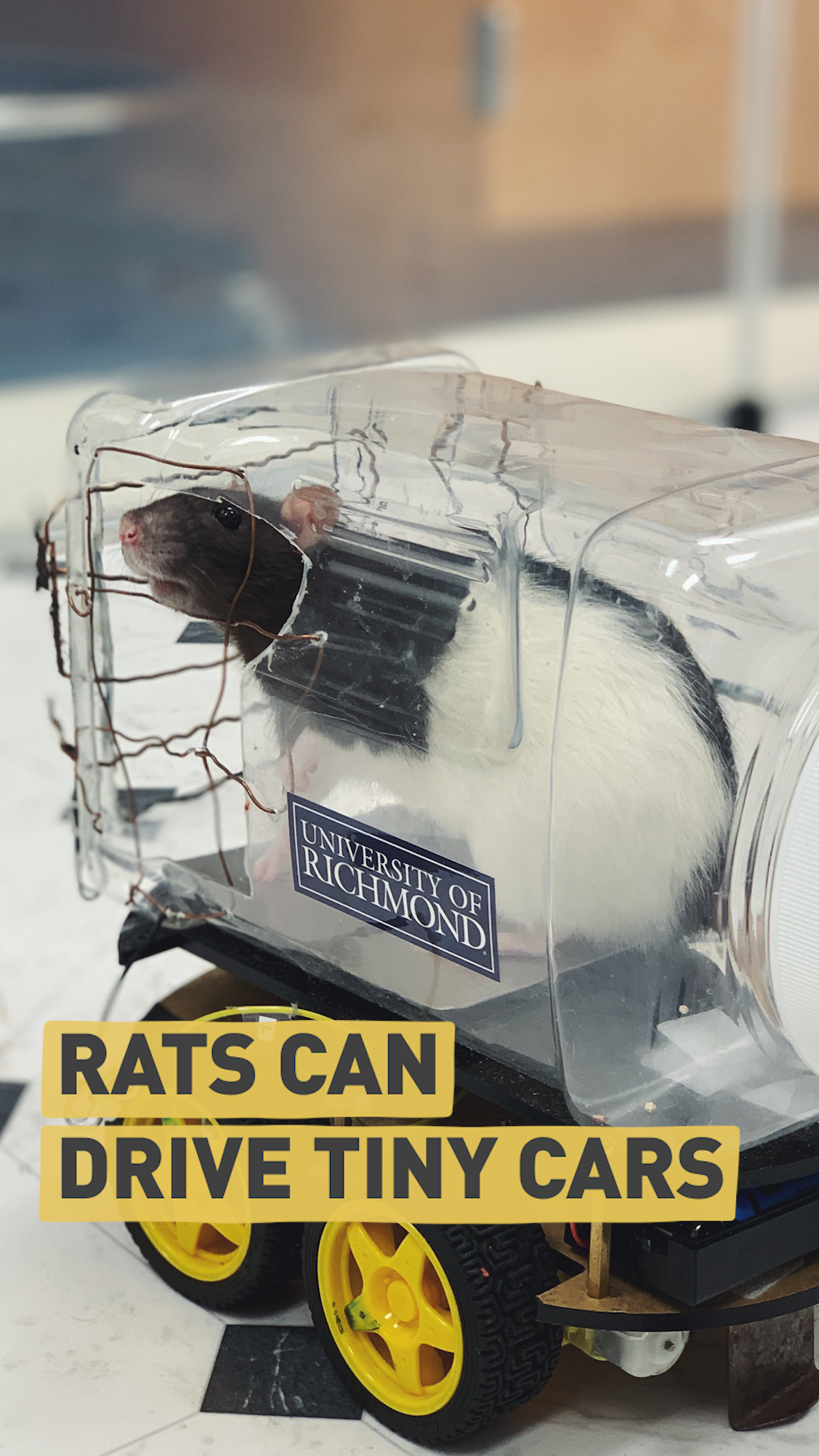For millions of humans around the world, the daily drive to work can be enormously stressful. However, it seems that not only can rats learn to drive primitive 'cars', but also that it reduces their stress levels to do so.
00:48

In research led by Kelly Lambert, professor of behavioral neuroscience at the University of Richmond in Virginia, USA, scientists took research up a few gears from rats finding their way around mazes. They wondered if the rodents, who are known to recognise objects and press buttons as tools to get a reward, could operate a moving vehicle.
Lambert's team constructed a small 'car' out of a clear plastic food box placed on wheels. When a rat stood on the aluminum floor and gripped a set of copper bars, harmlessly completing an electrical circuit, the vehicle moved forward; by touching the bars to the left or right, the rats could steer the car.
The six female and 11 male rats quickly learnt to steer the cars towards their rewards: Froot Loop cereal pieces provided by the scientists. Lambert was delighted with the results, and apparently so were the rats.

Professor Kelly Lambert has taught rats to drive (Credit: University of Richmond)
Professor Kelly Lambert has taught rats to drive (Credit: University of Richmond)
Lambert's team measured the rats' stress levels by examining their droppings for levels of two hormones: the stress-response hormone corticosterone and dehydroepiandrosterone (DHEA), which counteracts stress. Over the course of their driving lessons, the rats produced more DHEA than corticosterone, which means they were growing increasingly relaxed.
Lambert's research has previously shown that rats get less stressed when they complete complex tasks. She suggests they could derive satisfaction from learning a new skill: "In humans, we call this self-efficacy or agency."
Researchers hope the findings will help them find out more about neuropsychiatric conditions and brain illnesses such as Parkinson's disease. "We focus on neuroplasticity, or the ability of the brain to change throughout time in healthy ways," explained Lambert.
"Additionally, we investigate the negative impact of chronic stress and how it compromises mental health. We want to identify healthy coping strategies to minimize the negative impact of chronic stress."